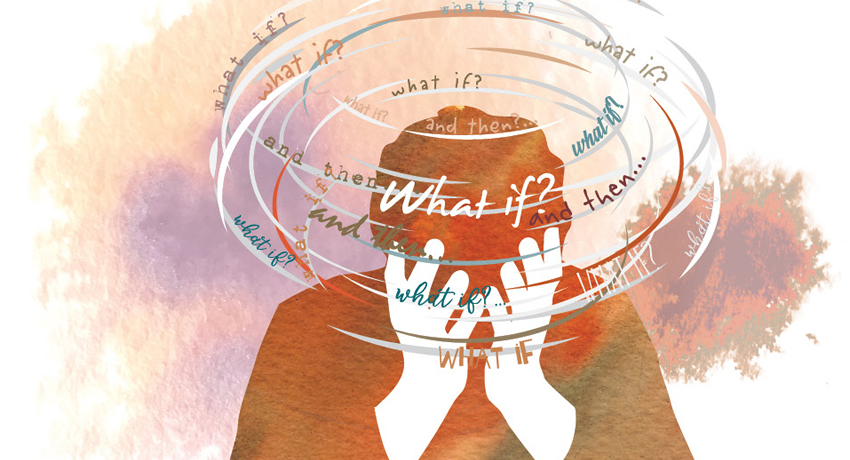Cancer and Anxiety: Wasted Time and Energy
Don’t let anxiety get in the way of your treatment

Anxiety is the body’s natural response to situations with a perceived threat. As anyone with a cancer diagnosis knows, nothing threatens the balance of your day-to-day life more than cancer. Patients may struggle at the time of diagnosis, during treatment, waiting for test results or even after treatment ends when they’re faced with fears about recurrence.
Some anxiety is normal and can be healthy because it motivates patients to follow their doctor’s instructions about diet, taking medication as prescribed and sticking to their treatment plan. For some patients, anxiety begins to interfere with day-to-day functioning. This is when it’s time to seek help.
“Without a doubt, cancer is a trauma,” says Julie Kuebler, N.P., who treats cancer patients struggling with anxiety. Kuebler is part of the PsychOncology Program, a joint program between the Rogel Cancer Center and the University of Michigan Department of Psychiatry and Depression Center that helps patients through the emotional aspects surrounding cancer.
Constant worrying about cancer can lead to catastrophic thinking, Kuebler explains, and when this happens anxiety becomes overwhelming. It’s important to treat anxiety before it results in avoidance, which can lead to skipped appointments or other behavior that hinders patient care.
Signs it’s time to ask for help
- Difficulty concentrating
- Unable to make decisions
- Sleep problems
- Day-to-day struggles
- Constant worrying
- Panic symptoms (intense fear, shortness of breath, sweating)
The good news is that the Rogel Cancer Center has many options to help patients cope with anxiety.
Talk to your care team or call 877-907-0859 to learn more about PsychOncology and complementary therapies to help with anxiety.
Complementary therapies such as art therapy, guided imagery and music therapy are available at no cost and are designed to give patients and families a creative or physical outlet to reduce stress and anxiety. The Families Facing Cancer program helps parents explain their cancer diagnosis to children in a supportive and helpful way.
Spiritual care is available for those patients whose religious or spiritual foundation is tested. Our chaplains are clinically trained to listen and provide spiritual care and assist patients in working through the distress that can accompany disease and treatment.
Social workers can be a valuable and supportive part of your treatment team and can be utilized for many different means of support.
For those patients whose anxiety is leading to catastrophic thoughts or obsessive worrying, Kuebler provides short-term therapies. One is cognitive behavioral therapy that helps patients to change negative thought patterns or unhealthy behaviors. Mindfulness can provide strategies to teach patients not to ruminate on anxious thoughts, but instead stay in the moment.
Kuebler also prescribes medication, usually taken on a short-term basis.
“Medications can be so helpful,” she says. “I tell patients the medications are safe and well tolerated. If there are side effects, they often get better. It’s worth giving it a try. People are often amazed at how much it makes a difference.”
Continue reading the Fall, 2018 issue of Thrive
